IAA #CommunityStars is a virtual event aimed to help independent retailers tackle new challenges day-to-day, including those bought on by Covid-19, price increases and changing consumer demand.
Although restrictions are easing across England, Scotland and Wales, retailers continue to be faced with new challenges, such as rising wholesaler delivery charges, the energy crisis and ongoing availability issues. This session offers insight and tools retailers can apply to tackle these hurdles, develop their business, and provide for their customers.
In the first session of 2022, Samantha Gunston, head of events at Newtrade Media was joined by Bart Dalla Mura, owner of Tysoe Village Stores in Warwick and Aberdyfi Village Stores in Gwynedd, to discuss the challenges he faces operating in a small village and tourist destination, his tried and failed innovations, and ways he’s tackling the war on single-use plastic.
“Tysoe Village Stores is 1,400sq ft and located in the Cotswolds and has quite an eclectic community,” Bart explains. “At the weekends, the store benefits from those living in London coming for a weekend away wanting more premium lines.
“Whereas Aberdyfi is 900sq ft and tourist-led. After the October half term, the trade almost completely diminishes which can be a challenge for us, with the population reducing from approximately 2,000 to less than 300.”
Aberdyfi Village Stores was recognised as the IAA 2020/21 Category Star for Environmental Sustainability. Bart and his team stood out above the rest for sponsoring a beach clean-up and recycling crab lines, separating deliveries from the rest of the shop, reducing the need for air conditioning, and replacing old chillers with new ones. The retailer also introduced LED lights, cutting electricity costs by 65%.
Here are eight ways Bart is growing both stores to cater for different demographics and maintain sales.
Dealing with challenges
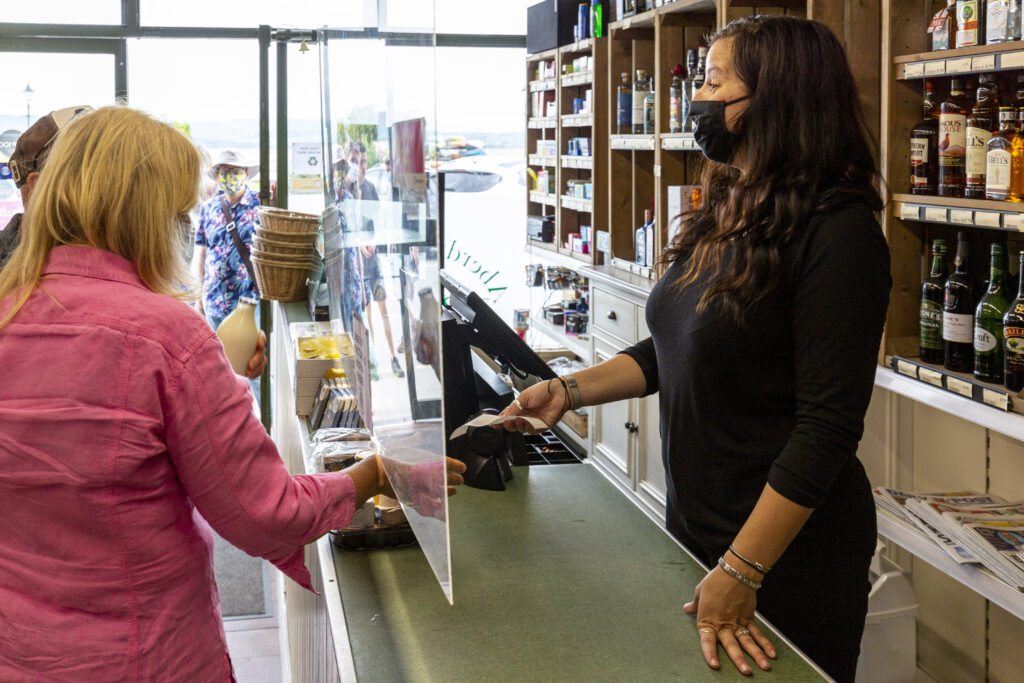
“With the Aberdyfi store, we made the decision to reduce the shop floor by half, dedicating the other half as a stock room,” explains Bart.
“This was because we could only get one delivery a week and with the nearest wholesaler a two-hour drive away, it wasn’t feasible for the sales we were generating.”
Each store is more than three hours’ drive apart, which poses some challenges for the retailer, but says having a manager is key. Bart also uses his EPoS system to connect remotely when he’s away from the store to check on sales if needed.
“We’ve also got CCTV in store, which helps in the event of a disaster, but I’m not sure what I can do in the case a serious disaster,” he says. “This is why it’s so important to have a manager who can make a decision and be self-reliant.”
Looking forward
“The goal now is looking at how we go forward,” Bart says. “We’re looking at initiatives we can build on from the pandemic, so we got them interested in our loose fruit and veg offering.”
Bart and his team launched an anti-plastic campaign which is less about encouraging customers to recycle, but to reuse instead. “Reusing is better and it’s about avoiding plastic,” Bart adds.
“There’s also some initiatives we’re not reintroducing, like dry cleaning. We used to do this a lot and it’s a great service, but we had customers just using us that service so we’re trying to carb our position as a destination for things you can’t go anywhere else for”.
To help with this, Bart also introduced trollies in his Tysoe store and bigger baskets in Aberdyfi. “Before we had trollies, we found that shoppers would stop picking things up so introducing trollies has combatted this.
“Each trolley also has a child’s seat, making it a much more pleasant experience for parents as it means they can buy what they want without too much hassle,” Bart says.
Find your niche
“We’ve recently become a SodaStream distributor, which was inspired by the amount of fizzy water we sell as a business,” Bart says.
“We put a big display up to attract customers and it’s been quite an initiative to get customers used to the idea of reusing plastic.”
Both stores sell the SodaStream appliances, as well as the gas needed and the syrups ensuring customers won’t need to go elsewhere to get what they need. “We also sell the plastic bottles that go into the appliance for customers to buy.”
Bart has plans to further reduce his plastic in store by offering customers refillable sparkling water options. “It’s possible to buy 500ml bottles so we’re trying to find a place in store for a water cooler and then we’ll fizz the bottle and charge a sum for customers,” Bart says.
“The worst stat I’ve heard that encourages me to reduce plastic, which is if we keep the way we’re going, in 20 years, the weight of plastic in the sea will be more than the number of mammals in the sea.”
Operating sustainably
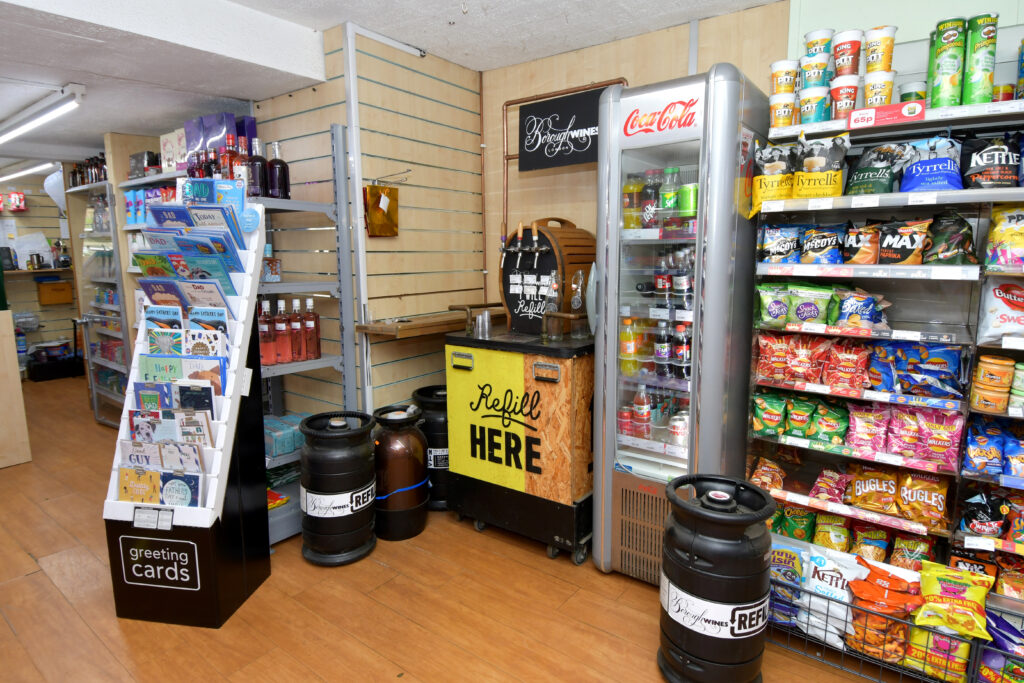
“We started accepting soft plastic and advertise this in store, which the community appreciate. We also take egg boxes and offer a refillable sustainable wine solution,” Bart says.
“There’s a new scheme our supplier has launched, which we do in Aberdyfi so any tourists can bring their bottles back to us, rather than it being thrown away.”
To encourage customers to buy loose fruit and veg, Bart plans on launching a loyalty scheme. “If customers buy three plastic free fruit and veg, all different, on 10 separate occasions, they’ll receive 15% off on the eleventh shop.
“We also offer sustainable detergents and in the coming months, we’ll be introducing loose pulses, rice and pasta in our Aberdyfi store,” Bart adds.
Simple ways to be sustainable
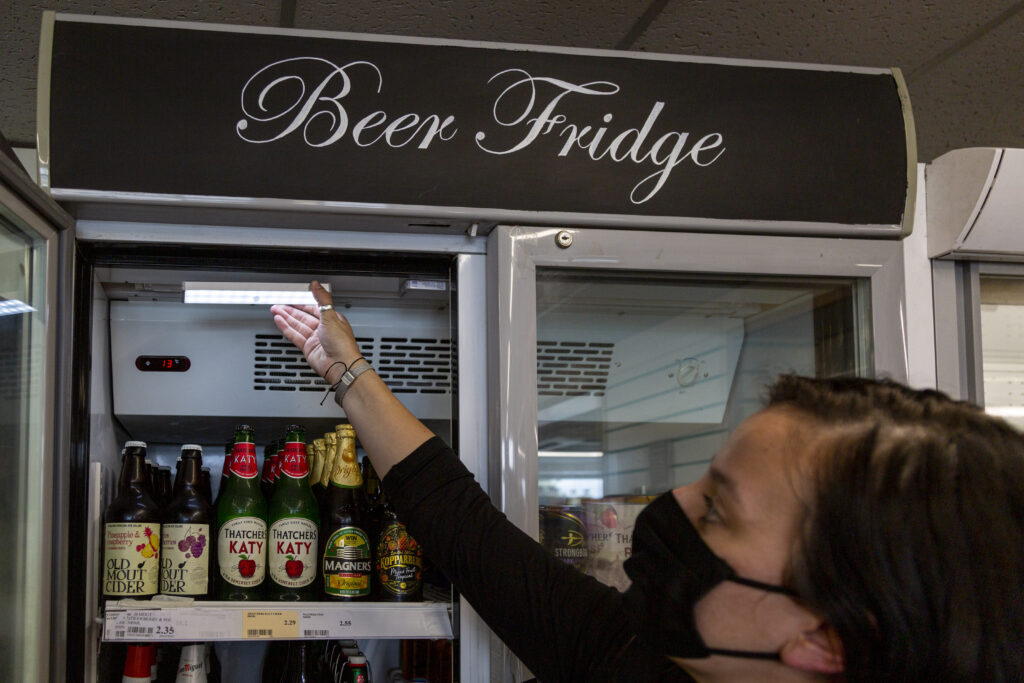
“We switched to renewable energy a while ago, joining Bulb before they went into administration,” says Bart. “We’re now with Octopus Energy for both stores.
“We tell our customers regularly we’ve switched to renewable energy and it’s the future of stores. It also means they forgive us if we’re slightly overpriced on some products because they know we’re operating the right way sustainably.”
With the ongoing energy crisis and rising costs, Bart knows the challenge he and his customers face. “We won’t change the policy we have, that would be a wrong move. We have to find a way to manage things, so what we’ve done is add timers on our chillers, cutting our energy usage,” Bart says.
The timers are set to turn alcohol chillers and lighting off at shop closing and will remain off until midday the following day. “As they’re on timers, we don’t need to rely on staff which improves our efficiencies. We also have LEDs to further reduce our energy consumption,” he says.
In addition to offering loose products, Bart recommends looking at changing small things that require no capital investment and generates little waste.
“We also increased our plastic bag charge to 20p, but each bag is bio-degradable, so we’re being sustainable even then.
“We make no money on the bags, and they break easily, but we can’t remove them because as a convenience store, we have more top up shops and customers won’t necessarily remember a bag,” he says.
Bart also offers bio-degradable fruit and veg bags and says: “There’s simple things everyone can do, just research it beforehand,” he says. “Get through the initial wave of complaining and lots of customers won’t comment but will appreciate your efforts.”
Going loose in a pandemic
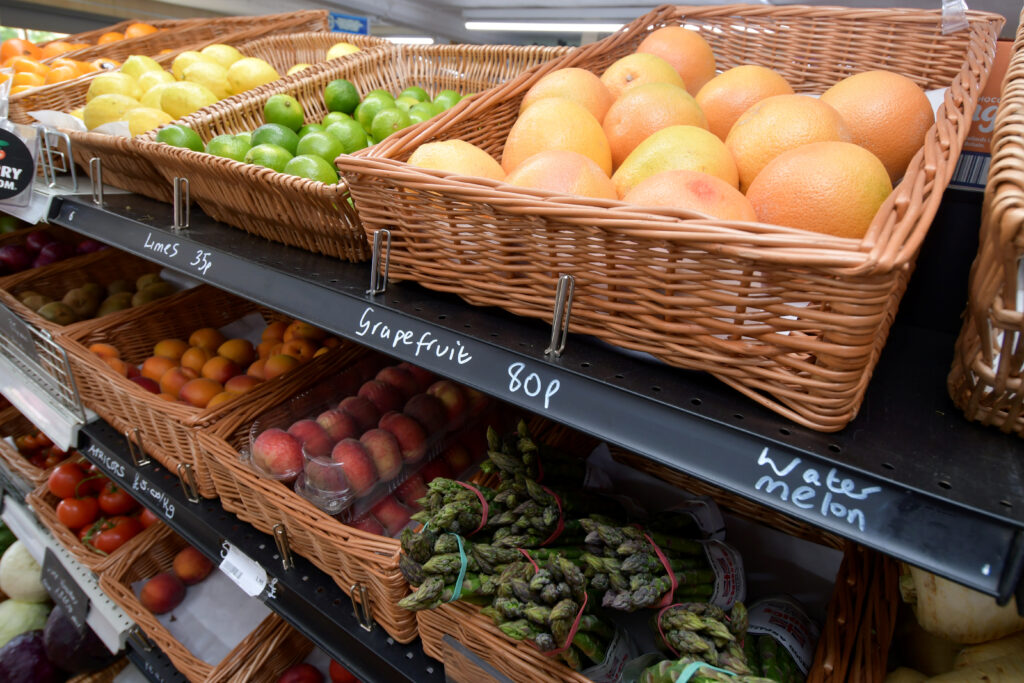
The challenge for independent retailers is the growing demand to offer loose products but doing so in a post-Covid-19 environment. Bart continues to offer loose fruit & veg and says the challenge is tackled by being proactive.
“We ask every customer to sanitise their hand when they enter the store, but also offer products that shoppers will typically wash when they get home,” he explains.
Bart offers carrots, cauliflower, oranges, and apples loose as these lines are often peeled, cooked, or washed prior to consumption, making it less hazardous for customers.
“As long as the shelves are clean, they’re well displayed and aren’t rotting, customers aren’t too concerned, and waste levels remain low.”
Customers buy what they need, and any unused stock is then transferred to Bart’s tearoom to make soup for customers to buy.
How suppliers can support us
“Suppliers need to tell us how we can sell a sustainable product, what’s the process and what are the selling points,” Bart explains when asked how suppliers can support retailers become more sustainable.
“There’s the old mantra of ticking a box of what’s my point of return, what display options to offer and what support is there. Every product should be recyclable, that’s no longer enough. Is it using less plastic, etc?”
Bart says he and many other retailers would benefit from digital PoS for them to encourage purchase through social media. “Not all our customers will see the advertising in store so if we have the digital ones we can post online and a link to the ad, that would help a lot,” he says.
What the IAA has taught me
“The key thing with the IAA is when we had to make changes and compromise, the IAA gives you almost a reset button to refocus.
“With life going back to normal, we’re reviewing our displays and making sure they are clean and professional. The IAA offers a checklist that makes you think and helps you carry out range reviews.
“It offers you discipline and a structure,” Bart says.
When asked about the simplest thing he’s learnt from the IAA, Bart says utilising the planograms were key. “It doesn’t mean retailers need to follow them religiously, but what it allowed me to do was think about my range,” he says.
“Our range has changed so much since the pandemic, lines that won’t sell now at all. The planogram has helped me identify the core range.”
Most of all, the reason to benchmark? Bart says: “It will give you an idea to disagree with, but it will make you start thinking, pushing you in the direction you might not have gone in otherwise.”
IAA Community Stars with Bart Dalla Mura
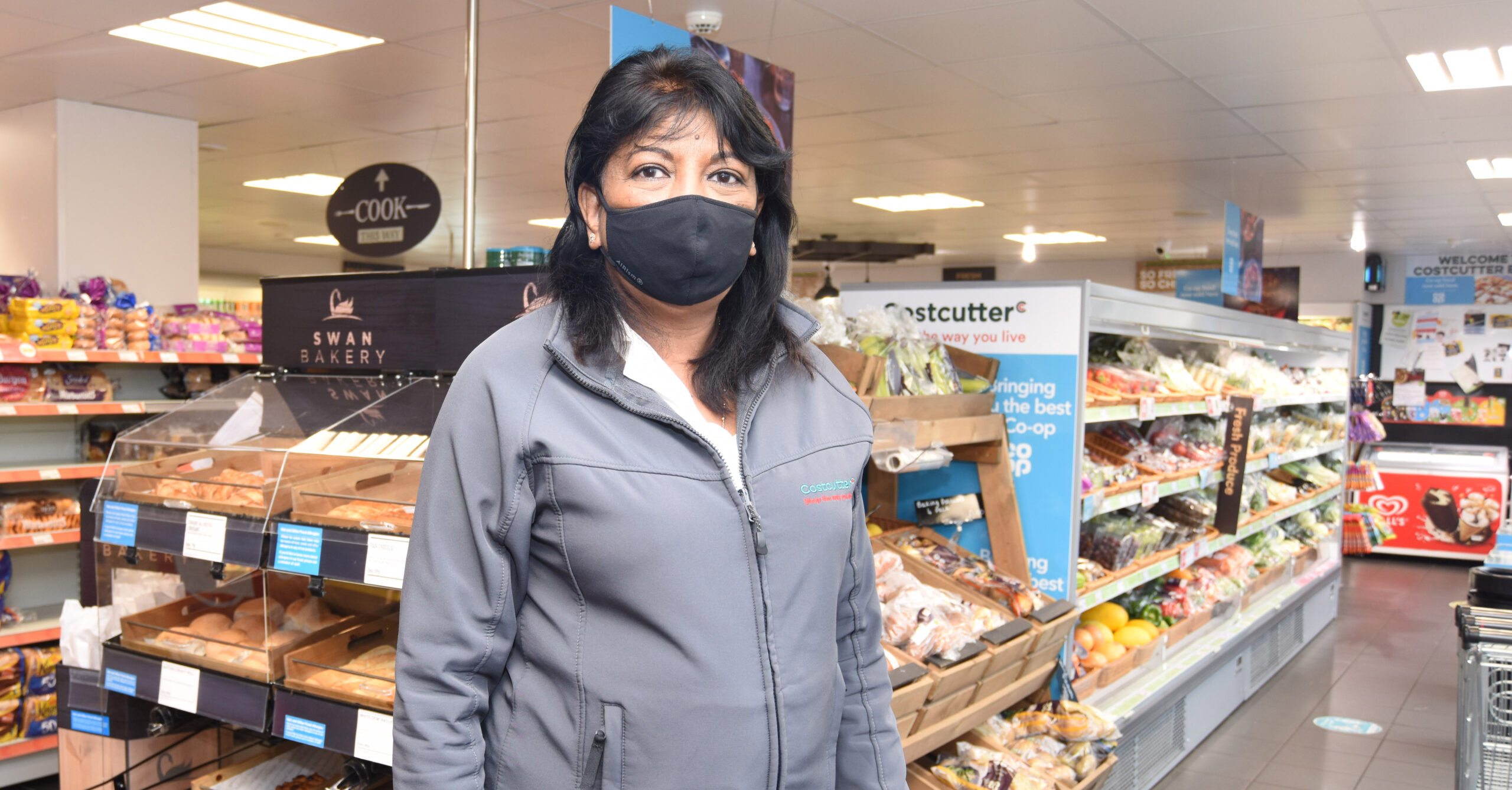
“All businessess should take part in the IAA, there’s always something new to learn and innovations to share”

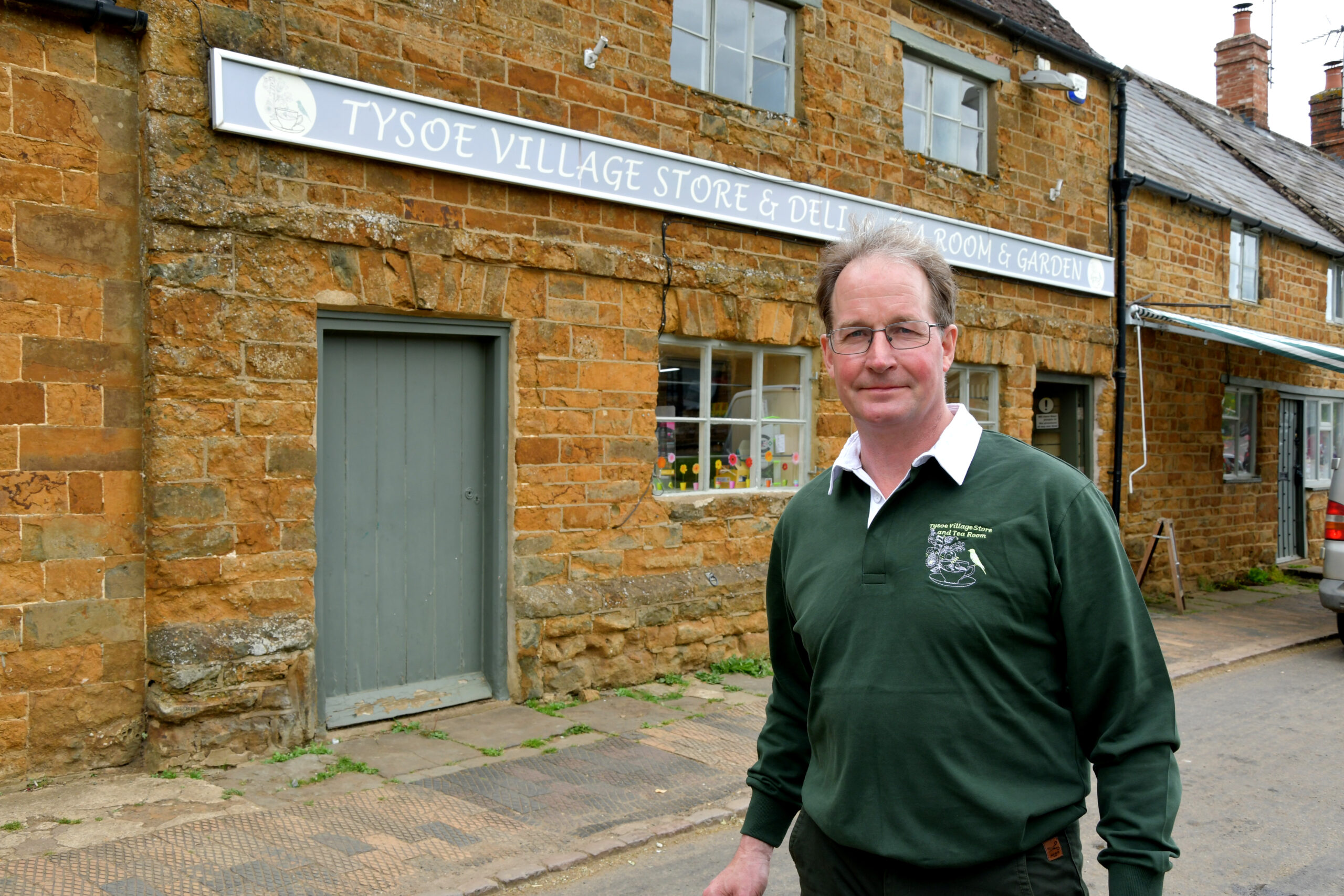

Comments
This article doesn't have any comments yet, be the first!